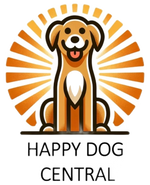Taking care of your dog's nutrition is vital for their overall health and well-being. Here are some important tips to keep in mind when it comes to feeding your furry companion:
Research Thoroughly
Select dog food that aligns with your dog's age, weight, and specific health needs.
Consider special diets like sensitive dog food for those with digestive issues or a calorie-controlled diet for weight management.
Establish Regular Feeding Times
Stick to a consistent feeding schedule to support your dog's energy levels, digestion, and metabolism.
Routine feeding can contribute to better behavior and mental stability.
Use Treats Sparingly
Treats are great for training and rewards but should be given in moderation.
Avoid treats with high sugar content or rawhide bones due to potential health risks.
Avoid Toxic Foods
Keep harmful foods like chocolate, caffeine, alcohol, grapes, onions, garlic, and xylitol (found in sugar-free products) away from your dog.
Control Portion Sizes
Prevent overeating by monitoring portion sizes and avoiding excessive feeding.
Overfeeding can lead to digestive issues and weight gain, which can impact your dog's health.
Respect Mealtime Privacy
Allow your dog to eat in peace without interruptions.
Educate family members, especially children, to avoid disturbing the dog during meals to prevent food aggression.
By following these guidelines, you'll ensure that your dog receives the nutrition they need to thrive. Always consult with your veterinarian for personalized dietary recommendations based on your dog's specific requirements and health conditions.

